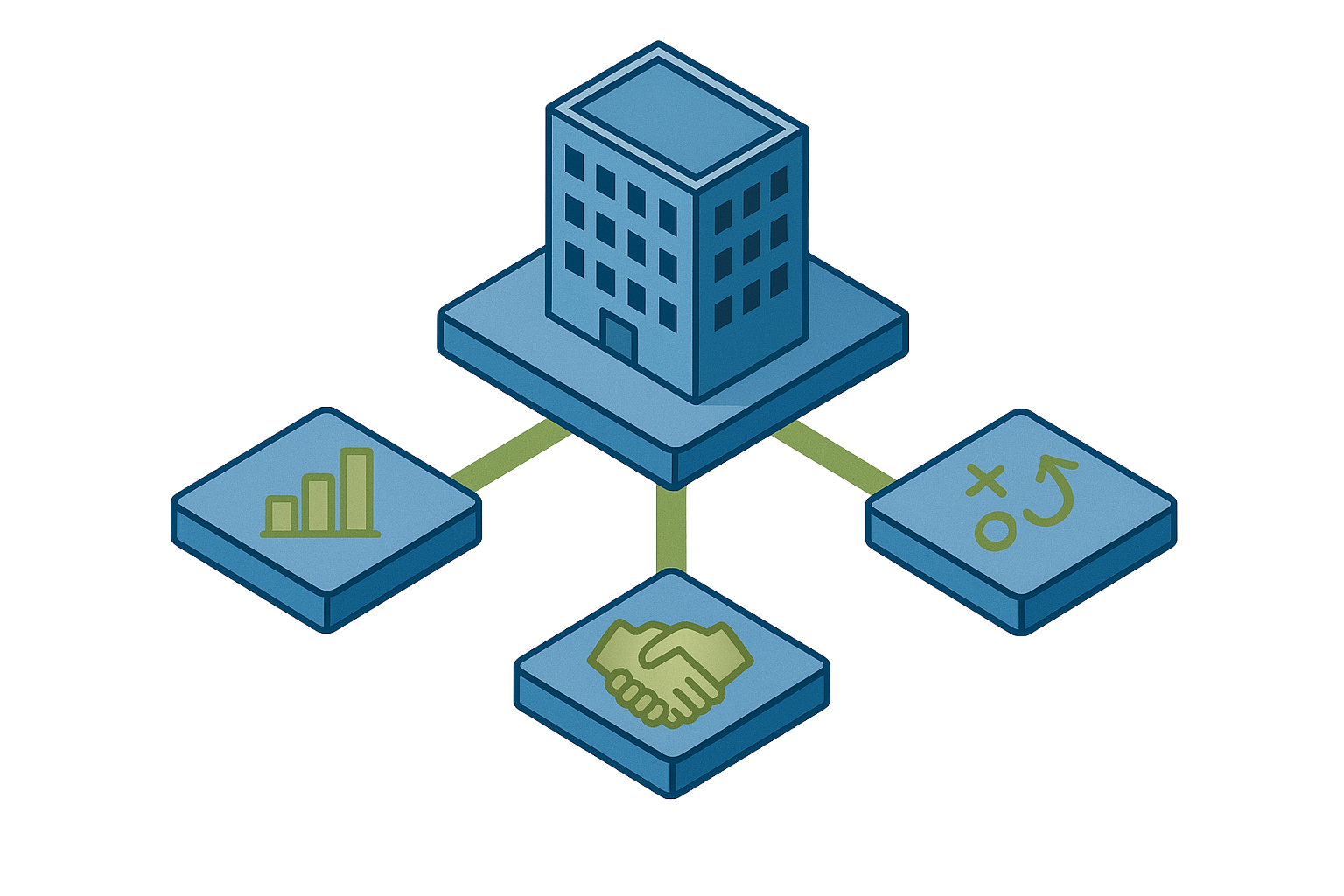Deal Ready: Strengthening Your Firm’s Position for Private Equity or Acquisition
Why Private Equity (PE) is Investing in Accounting Private equity investments and merger activity have reshaped the accounting landscape. Between...
4 min read
Christine Hollinden : May 28, 2025 10:52:45 AM

Updated August 20, 2025: Illinois Governor JB Pritzker has officially signed House Bill 2459, creating two additional CPA licensure pathways in the state. The new law takes effect on January 1, 2027. These changes provide alternatives to the traditional 150-hour requirement and are designed to expand access to the profession while maintaining rigorous standards.
Illinois has just passed sweeping changes to its CPA licensure requirements. These updates, finalized this week, join the momentum of over a dozen other states that have already taken steps toward modernizing licensure to better align with today’s workforce realities. The changes are also consistent with the AICPA and NASBA’s proposed updates to the CPA model, aimed at broadening access and reducing barriers to entry.
For small to mid-size accounting firms focused on growth and talent acquisition, this legislative shift presents a powerful opportunity. From attracting a more diverse candidate pool to expanding operational flexibility, licensure reform of this kind sets the stage for a more dynamic and competitive future.
The traditional CPA licensure model—requiring 150 college credit hours, passing the CPA exam, and completing one year of supervised experience—has been a cornerstone of the profession for decades. However, this model has increasingly been viewed as outdated and exclusionary. Many aspiring accountants face financial and logistical challenges in meeting the 150-hour requirement, leading to a drop in CPA candidates nationwide. This decline exacerbates an already acute talent shortage, especially for small to mid-size firms that struggle to compete with larger firms’ recruitment resources.
House Bill 2459, set to take effect January 1, 2027, amends the Illinois Public Accounting Act by introducing two new CPA licensure pathways:
These alternatives provide flexible, experience-focused routes to licensure while maintaining the profession's rigorous standards. Numerous states have adopted similar requirements, with the exception of Florida, which is pushing for three pathways and a tuition-free path to a Master's in Accounting.
Another key provision across states is expanded practice mobility. CPAs licensed in states with equivalent requirements can now practice in Illinois and other states without obtaining a separate state license. If a state’s requirements are not deemed equivalent, the CPA must petition the state's licensure committee for consideration.
This mobility enhancement aligns with broader national trends, streamlining interstate practice and allowing firms to operate more seamlessly across state lines. It also boosts those states' attractiveness as a hub for accounting services, enabling greater flexibility for firms and professionals alike.
The revised licensure structure broadens the talent pool. Firms can now consider candidates with alternative educational and experiential backgrounds, opening doors to career-changers, diverse professionals, and those previously deterred by the 150-hour hurdle.
Flexible pathways allow firms to craft customized development programs. By supporting staff through new licensure options, firms can improve engagement and reduce turnover, demonstrating a genuine investment in employee growth.
Human resources practices, job descriptions, and mentorship models will need to evolve. Firms that modernize internal systems to reflect new standards can position themselves as progressive and employee-friendly.
With enhanced mobility provisions, firms outside state lines can now serve clients within the state without obtaining additional licensure. This reduces operational friction and opens the door for:
Conversely, in-state firms can access a wider talent pool and explore remote collaborations. The result is a more competitive, interconnected marketplace ripe with growth potential.
To capitalize on these changes, firms should:
Expand Recruiting: For firms in markets where competition is hot, now is the time to consider out-of-state schools and job boards.
Illinois’ reforms are part of a sweeping national trend. According to the Minnesota CPA Society, more than 40 states have now enacted or are actively advancing legislation to broaden CPA licensure pathways. Only a handful of states remain holdouts.
In 2025 alone, states such as Ohio, Virginia, Utah, Georgia, Connecticut, Delaware, Hawaii, Alaska, Indiana, Iowa, Montana, Nevada, New Mexico, North Carolina, Oregon, Pennsylvania, South Carolina, Tennessee, Texas, and Maryland passed legislation creating new licensure options. Many of these laws take effect between late 2025 and 2027, signaling rapid and widespread modernization across the country.
Other states, including California, New Jersey, Massachusetts, Michigan, and Arkansas—have active legislation or Board of Accountancy rule changes in motion, with implementation expected in the next one to two years.
States Still Holding Out
Only seven states have yet to adopt or formally pursue new CPA licensure pathways: Idaho, Wyoming, Nebraska, Kansas, Missouri, Kentucky, Louisiana.
These states continue to adhere to the traditional 150-hour rule with no alternative bachelor’s-plus-experience or master’s pathways currently authorized.
The near-universal adoption of reform underscores the urgency of addressing the CPA talent shortage. For firms operating across multiple jurisdictions, understanding which states have enacted changes and which remain unchanged is critical for workforce planning, recruiting, and compliance strategy. The map is shifting quickly: staying informed on holdouts and future adopters will position firms to capitalize on the new pipeline of CPA talent.
Despite the promise, firms must navigate:
Change also invites resistance. Traditionalists may question the impact on professional rigor. Firms must be prepared to advocate for the value of diverse licensure paths and uphold high standards internally.
Licensure reform is a forward-looking response to a critical industry challenge. For small to mid-size accounting firms, it’s a chance to rethink how they attract talent, structure development, and grow their presence. Those that adapt early will gain a decisive advantage in an evolving professional landscape.
Ready to embrace this new era of opportunity? Hollinden works with firms just like yours to leverage market opportunities and grow. Let’s discuss your next step forward.
The Hollinden Point of View brings you monthly insights tailored to helping you grow your firm.

Why Private Equity (PE) is Investing in Accounting Private equity investments and merger activity have reshaped the accounting landscape. Between...

Organic, Acquisition, or PE-Backed—Which Path Will You Choose?

In today’s fast-evolving accounting landscape, mid-market firms face both a pressing challenge and a powerful opportunity. Traditional compliance...